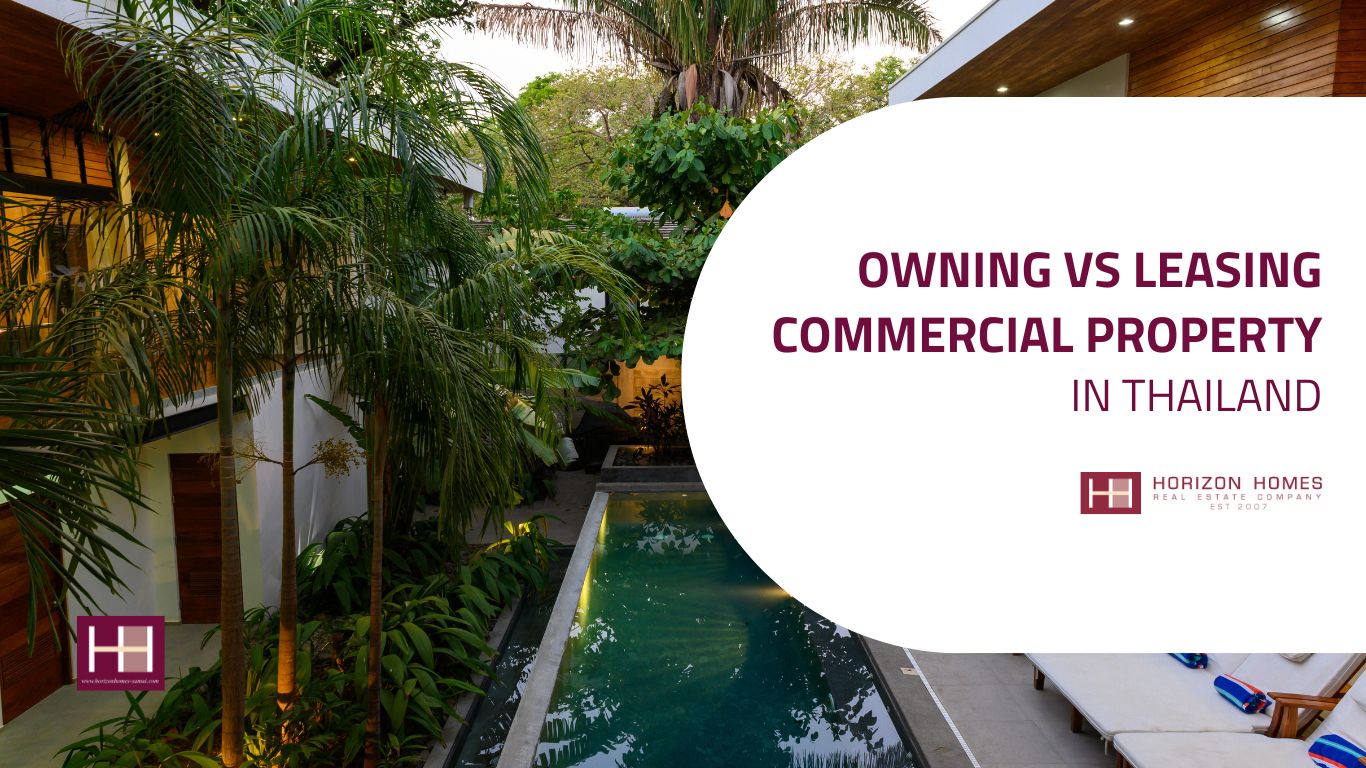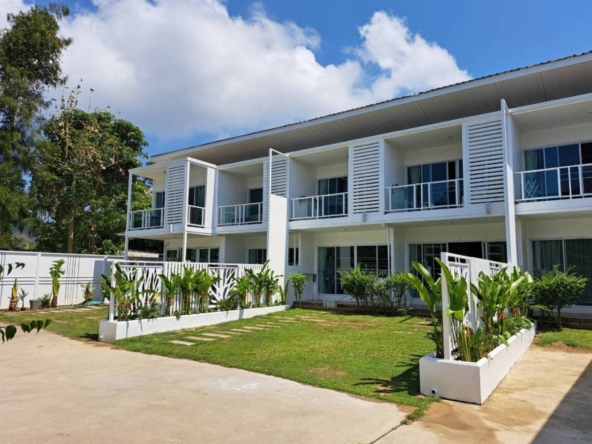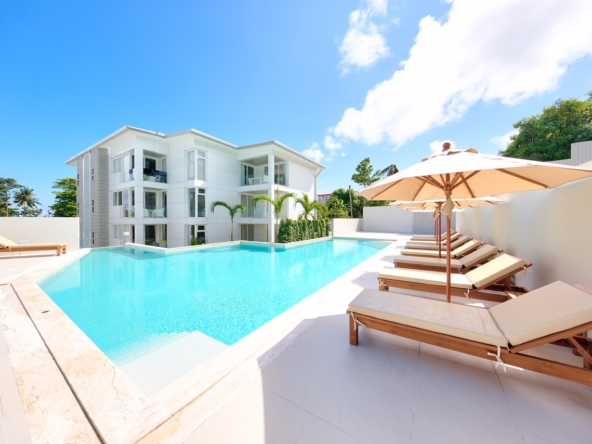Thinking about diving into the commercial property market in Thailand? You’re not alone. Many investors face the same question: Should you own or lease? Both options come with their own set of advantages and challenges. Ownership provides control, while leasing offers flexibility at a lower cost. But what’s the real deal in Thailand? Let’s break it down.
What You Need to Know About Owning and Leasing Commercial Property in Thailand
When it comes to commercial property, Thailand offers two main paths: ownership and leasing. Each comes with distinct benefits and challenges, especially for foreigners. While you can own buildings such as condos, foreigners cannot own land outright in Thailand. This is why leasehold agreements are often the preferred option for foreign investors.
Owning Commercial Property in Thailand: Pros and Cons
| Pros | Cons |
| Full Control: Freedom to make modifications, renovations, or changes without landlord approval. | High Upfront Costs: Significant initial investment, including down payments and property taxes. |
| Investment Potential: Property in Thailand is likely to appreciate, offering long-term financial gains. | Ongoing Maintenance: Owner is responsible for upkeep, repairs, and other maintenance costs. |
| Stability: Provides security and permanence for businesses. | Legal Complexities: Foreigners may need a local partner or a leasehold structure to navigate land ownership laws. |
Leasing Commercial Property in Thailand: Pros and Cons
| Pros | Cons |
| Flexibility: Allows businesses to move or adjust locations easily, perfect for testing new markets or rapid expansion. | Limited Control: Significant changes or modifications usually require landlord approval. |
| Lower Initial Costs: No hefty down payments, allowing capital to be used for other business needs. | Potential Rent Increases: Rental rates can rise over time, so budgeting for hikes is essential. |
| Maintenance Outsourcing: Landlords are generally responsible for major repairs, saving tenants time and money. | Lease Renewal Hassles: No guarantee of lease extension, so negotiating renewal clauses is important. |
| Risk Mitigation: Easier exit strategies if the business direction changes, compared to selling a property. | Restrictions on Subleasing or Transferring: Subletting or transferring the lease requires landlord consent. |
| Less Responsibility: Landlord handles most property maintenance, including structural repairs. |
Legal Framework for Commercial Leases in Thailand
Navigating Thailand’s leasing laws can be tricky, but understanding the framework is essential. In Thailand, commercial leases are generally limited to 30 years, though under certain conditions, they can extend to 50 years. Here’s what you need to know about the legal aspects of leasing commercial property:
- Lease Registration: Leases over three years must be registered with the Land Office, which provides legal security to both landlords and tenants.
- Zoning Laws: The property must be designated for commercial or industrial use. Zoning laws determine which areas can be leased for business purposes.
- Repair Responsibilities: Minor repairs are typically the responsibility of the lessee, while major repairs (e.g., structural damage) fall under the landlord’s duties.
- Subleasing and Transfer: Any subletting or lease transfer requires the landlord’s consent. If the property is sold, the new owner will honor the lease agreement, so you’re not left in the lurch.
The Civil and Commercial Code and Lease of Immovable Property for Commercial or Industrial Purposes Act are the main regulations governing commercial leases in Thailand. These laws ensure that leasing transactions are fair and transparent for all parties.
Types of Land and Business Activities Eligible for a Commercial Lease
Not all land is eligible for a long-term lease in Thailand. Commercial and industrial properties must meet specific requirements for lease eligibility, including:
- Location: The land must be located in areas zoned for commercial or industrial use by local authorities or industrial estates.
- Investment Requirements: For businesses leasing large areas (over 16,000 square meters), additional criteria apply. Businesses must contribute to export value or promote local employment.
- Foreign Business Act: Foreigners can lease land in Thailand, but the business activities they engage in must be legally permitted under the Foreign Business Act.
Leases for commercial properties typically span 30 years, with some leases extending to 50 years under certain circumstances. However, leases longer than three years must be registered with the Land Office for added security.
Conclusion
Deciding between owning and leasing commercial property in Thailand depends on your business goals, financial strategy, and understanding of local laws. Ownership provides control, investment potential, and long-term security, but it comes with higher upfront costs and responsibilities. Leasing, on the other hand, offers flexibility, lower initial costs, and fewer long-term commitments, making it an attractive option for many investors.
By understanding the legal landscape, the benefits, and the limitations of each option, you can make an informed decision that aligns with your investment strategy. Whether you’re looking for control or flexibility, the Thai commercial property market offers options for both types of investors.






